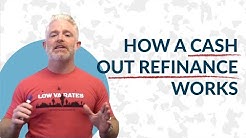Fha Home Loans Application The mortgage bankers association (mba) said that increases in applications for both FHA and VA mortgages were behind a jump. "On an adjusted basis, application volume increased last week, led by a.
Loans have been. estate if we see, then equity means the difference between the actual value of the property and what the borrower holds against the property in terms of mortgages or may be in term.
Refinancing with a home equity loan "If you’re only going to be in the house for two or three years, then a home equity refinance is better if you can afford a 15-year payment," says Mike.
Home Loan For Fair Credit Loans for a Fair Credit Score. The higher your credit score, the lower your interest rate tends to be for loans and credit card offers. For those with excellent credit, credit card interest rates hover around 14%. Good credit scores give you access to cards with rates averaging around 20%.
If you have enough equity in your current home to do a "Cash-Out Refinance" or "Home Equity Loan" to pay the total cost of the new home, then the answer is yes. However, you cannot use the current.
Refinancing pays off your old mortgage in exchange for a new mortgage, ideally at a lower interest rate. A home equity loan gives you cash in exchange for the equity you’ve built up in your.
The equity part of the equation can be a roadblock since you need to have a lot of equity in your home to qualify for a cash-out refinance. Let’s say your home has a value of $300,000 and you want to take cash out. In that case, you could only borrow up to $240,000 through a cash-out refinance.
The difference between a home equity loan and a traditional mortgage is that you take out a home equity loan after you have equity in the property versus getting a mortgage to purchase the property.
A home equity loan and a cash-out refinance are two ways to access the value that has accumulated in your home. Although the loans are similar, they’re not the same.
Cash-out refinancing differs from a home equity loan in several ways: A home equity loan is a second loan on top of your first mortgage. A cash-out refinance is a replacement of your existing mortgage. The interest rates on a cash-out refinancing are usually lower than the interest rate on a home equity loan.
 Because a cash-out refinance requires you to take out a new first mortgage, closing costs are typically greater than with a home equity loan or HELOC. Recasting your home mortgage may cause you to owe money on your home for years longer than you had planned.
Because a cash-out refinance requires you to take out a new first mortgage, closing costs are typically greater than with a home equity loan or HELOC. Recasting your home mortgage may cause you to owe money on your home for years longer than you had planned.